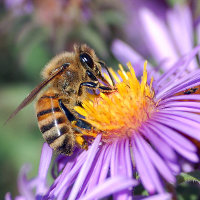Home » Regions » North America » Eastern Temperate Forests » Mixed Wood Plains » Northern Allegheny Plateau
Northern Allegheny Plateau
Last updated: August 7th, 2019
To check where a specific point lies, you can look it up in our Ecoregion Locator.
↑Map Legend & Subregion List
This list will help you navigate the regions in case you have problems with viewing or clicking the interactive map above.
| Name | † | Color on Map | EPA Code‡ |
| Glaciated Low Allegheny Plateau | ✓ | 60a | |
| Delaware-Neversink Highlands | ✓ | 60b | |
| Catskills Transition | … | 60c | |
| Finger Lakes Uplands and Gorges | … | 60d | |
| Glaciated Allegheny Hills | ○ | 60e | |
| Cattaraugus Hills | ○ | 60f |
† Status: ✓ = Complete ○ = Needs Image … = Incomplete ∅ = Stub Only
‡ This code refers to the US EPA's Level 4 ecoregion codes for the continental U.S., see here.
↑Progress
Partially Complete | With Images | Complete w/ Images |
Get involved! You can help our ecoregion articles progress faster. Help us find photos of these regions. Contact us if you have any additions or corrections to any of these articles. You can also donate to support our ongoing work.
↑About the Northern Allegheny Plateau
The Northern Allegheny Plateau, also sometimes referred to as the Northern Appalachian Plateau and Uplands, is a somewhat irregularly-shaped region stretching arcoss much of the southern border of upstate New York, extending into northeast Pennsylvania as well. Like surrounding areas, this area was recently glaciated.The landscape is flat over a large spatial scale, but locally there are hills, ridges, and valleys throughout the region. The underlying rock is sedimentary; Devonian sandstones make up the more erosion-resistant ridges, whereas lowlands have more erodable shales and siltstone. The topography is flatter than the North Central Appalachians to the south or the High Allegheny Plateau to the southwest, and more suitable for agriculture. There are numerous glacial lakes throughout the region.
Naturally this area was mostly Appalachian oak forest, with some northern hardwood forests at the higher elevations. Agriculture here is common, and is interspersed with small pieces of forest. Although the remaining forest here is mostly highly fragmented by agriculture, some larger tracts of forest exist in the form of State Game Lands in Pennsylvania and New York state parks.
This region is bordered to the north by the flatter Eastern Great Lakes Lowlands. To the west there is a small border with the Erie Drift Plain. To the south, this region is bordered by the higher-elevation and more rugged North Central Appalachians, and at the east there is a small border with the Northeastern Highlands.
Plant Lists & In-Region Search
↑References
1. Wiken, E., Griffith, G. "North American Terrestrial Ecoregions - Level III", Commission for Environmental Cooperation, (2011) Web.


